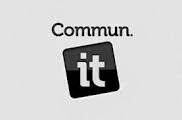The Gospel According to Social Media (Twitter)
Quantifying Relationships
In social media circles, these guys have a corner of the market if not the whole block.
Having interacted with some useful monitoring tools like Commun.it, i have made a list of
necessities that in my view help define what twitter does specifically and what social media
does in general. Commun.it in my view is probably built with a database at its core. The database links with
your twitter page and begins to classify your information in several categories.
1. People who follow you: Followers
2. People you follow: Following
3. Messages you send or Tweets
4. Messages you like Favorite
5. People whose messages you favorite
6. Messages you re tweet
7. People you reply to
8. Message and key words within those messages
Commun.It then gathers all this information and defines the responses into broad categories
Influencers (based on how many follow), Engagers (based on how many interact), Community Participators (capitalizing on the desire of people to be part of a physical community and to be involved).
Because it is primarily based on numbers, the system will also make a decision as to which people you should consider not to follow. This is great in a game of numbers but detrimental if you think solely in terms of relationships.
The software may not realize that some of the people are new users and therefore likely to have very little interaction.
Key Questions for the Future
Perhaps the greatest achievement is to boost my interest in social media and twitter especailly and the people that i interact with or have chosen to follow.
a. How do i turn someone who i follow into a follower.
b. How do i increase my interactions
c. How do i push the envelop to increase favorites and re-tweets
The Language Matters
Follow, Re-tweet, Reply, Favorite
People create small messages just like they used to using their phones and people who have
an interest respond to these messages.
More that this though, the messages people post are extension of larger messages or writings which
are often stored in web logs or blogs. So these tools are designed for the writer and other people of
with a measure of clout. This is what commun.it calls influence. This is measured by the number of people that follow you and the number of times your messages are re-tweeted or 'favorited'.
Twitter therefore is able to gather a lot of information about you. Who you follow tells a lot about who you are. If you look at the profile of a journalist, the chances are, they will follow other journalists. This gives you ar rough idea what they value and how they think. It can even give you an idea what they aspire to...if they do not express it in their writings.
The language used by twitter reveals a lot about how we think. If you develop an interest in a person
you then you Follow them. If they choose to follow you back, you can then send them direct messages.
Everything you send someone who does not follow you, is normally displayed in public.
It will often be assumed that if you like something someone says, you will follow them or like them (in facebook).
It is interesting that this has become a debate in the American Courts. The question of whether 'like' can be protected under as free speech.
Actions have Implications
I have often albeit humorously wondered whether twitter should change the word used when you like something and used another term instead of 'favoriting'. In my view if i see something of interest, that is all it is interest. By 'favoriting' means and seems to carry more connotations to it. It seems as though by favoriting a post, i am inadvertently expressing agreement. Some of the biggest casualties of these actions were employees who almost lost their jobs or others who suffered for seemingly supporting or liking the 'wrong' candidates.
Relationships matter and are costly
With the advent of new groups which have been classified as terrorist in their ideology, you will find questions arising about whether they too should be allowed to express themselves freely on platforms like twitter.
Soon though, it will become rather tricky for other who follow or read pages built by controversial people. This is why people who are found on the wrong side of the law often find their pages abandoned (by followers and friends).
The point about this and other relationships, is that they must be cultivated. All valuable relationships take time.
Carry out a systems log of all the relationships you have and all the interactions and try to figure out how you
can enhance these relationships.


Comments
Post a Comment